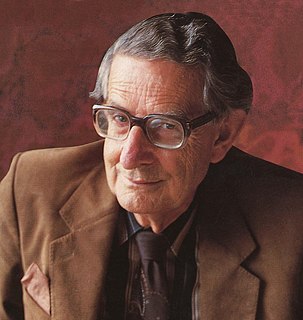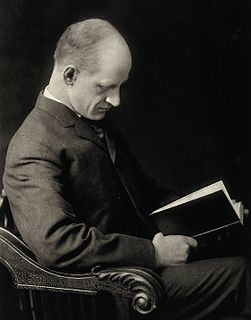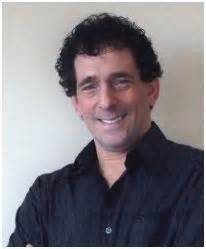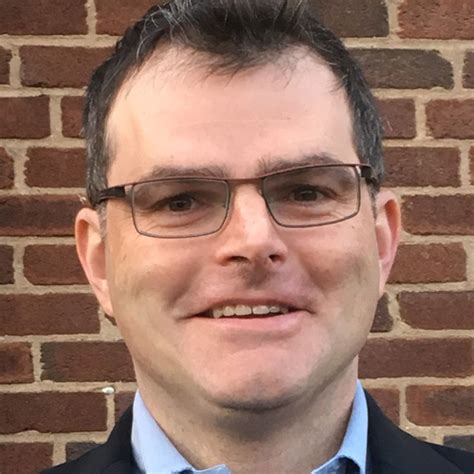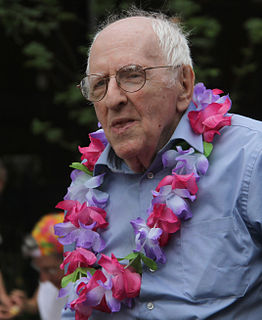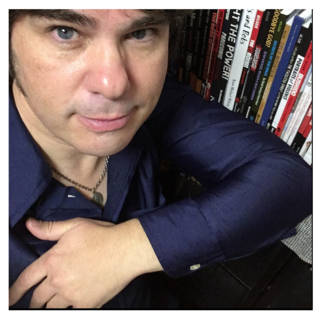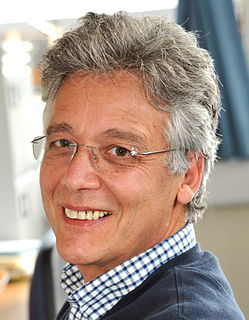Top 121 Psychotherapy Quotes & Sayings - Page 2
Explore popular Psychotherapy quotes.
Last updated on December 18, 2024.
The continuing struggle was once described in the following metaphor by a patient who had successfully completed a long course of psychotherapy: 'I came to therapy hoping to receive butter for the bread of life. Instead, at the end, I emerged with a pail of sour milk, a churn, and instructions on how to use them.' (138)
I believe that anyone who wants to stand in a national election should receive a course of psychotherapy. Completing the course should be a qualification for office. This wouldn't change the behaviour of psychopaths, but it might prevent some people who exercise power from imposing their own deep wounds on others.
Individual psychotherapy - that is, engaging a distressed fellow human in a disciplined conversation and human relationship - requires that the therapist have the proper temperament and philosophy of life for such work. By that I mean that the therapist must be patient, modest, and a perceptive listener, rather than a talker and advice-giver.
It is the psychic depression of decadence which has come to this place and time. It is what happens to people who ignore their artists and deny their children. It is a terminal case of involutional melancholia which comes from within and cannot be cured by T.V. or psychotherapy or anything but a creative life, which is hard to come by in a country where it doesn't pay to do anything for yourself.
I do not like to work with patients who are in love. Perhaps it is because of envy - I, too, crave enchantment. Perhaps it is because love and psychotherapy are fundamentally incompatible. The good therapist fights darkness and seeks illumination, while romantic love is sustained by mystery and crumbles upon inspection.
Existential psychotherapy is the movement which, although standing on one side on the scientific analysis owed chiefly to the genius of Freud , also brings back into the picture the understanding of man on the deeper and broader level man as the being who is human. It is based on the assumption that it is possible to have a science of man which does not fragmentize man and destroy his humanity at the same moment as it studies him. It unites science and ontology .
Most therapists do not appear to know how to pinpoint and reverse therapeutic resistance - to head it off at the pass. Instead, they try to persuade the patient to change, or to do the psychotherapy homework, while the patient resists and 'yes-butts' the therapist. The therapist ends up feeling frustrated and resentful, and doing all the work.
What basic psychological distortion can be found in every civilization of which we know anything? The only psychological force capable of producing these perversions is morality - the concept of right and wrong. The re-interpretation and eventual eradication of the concept of right and wrong are the belated objectives of nearly all of psychotherapy.
For many years I wrote nothing but "I will not sleep with Steve Almond" over and over again, page after page à la Jack Torrance in The Shining. Finally, hundreds of psychotherapy sessions and an intense shaman-guided DMT sweat lodge experience led to a breakthrough, and I was able to write about other people I would not sleep with, and also about people I would.
But then back on lithium and rotating on the planet at the same pace as everyone else, you find your credit is decimated, your mortification complete: mania is not a luxury one can easily afford. It is devastating to have the illness and aggravating to have to pay for medications, blood tests, and psychotherapy. They, at least, are partially deductible. But money spent while manic doesn't fit into the Internal Revenue Service concept of medical expense or business loss. So after mania, when most depressed, you're given excellent reason to be even more so.
Our capacity to move forward as developing beings rests on a healthy relationship with the past. Psychotherapy, that widespread method for promoting mental health, relies heavily on memory and on the ability to retrieve and organize images and events from the personal pastIf we learn not only to tell our stories but to listen to what our stories tell us—to write the first draft and then return for the second draft—we are doing the work of memory.
In Western dream interpretation, it's often connected to psychotherapy and looking at the personality and what's going on in your life. In Eastern dream telling, many times there's this idea of a special gift. And without this gift, you could study and study, but you'd never really become an effective dream teller.
I am one of those sort of "lesser" types, those sensitive types, those people who wouldn't have made it on their own if other people hadn't helped them. A straightforward capitalist society would've cut them off and let them die. So I was saved by my friends and by my family and by people who cared about me, and by modern psychotherapy that cared about women.
Want to discover the truth about deception in therapy? Jeffrey Kottler and Jon Carlson have collected a formable collection of old pros whose compelling prose sheds light on an important, but previously unexplored, subtext that permeates psychotherapy. Don't fool yourself: The roadmap to avoid being duped is contained within.
Advocates of psychiatric drugs often claim that the medications improve learning and the ability to benefit from psychotherapy, but the contrary is true. There are no drugs that improve mental function, self-understanding, or human relations. Any drug that affects mental processes does so by impairing them.
Power is required for communication. To stand before an indifferent or hostile group and have one's say, or to speak honestly to a friend truths that go deep and hurt these require self-affirmation, self-assertion, and even at times aggression. ... My experience in psychotherapy convinces me that the act which requires the most courage is the simple communication, unpropelled by rage or anger, of one's deepest thoughts to another.
The mainspring of creativity appears to be the same tendency which we discover so deeply as the curative force in psychotherapy, man's tendency to actualize himself, to become his potentialities. By this I mean the organic and human life, the urge to expand, extend, develop, mature - the tendency to express and activate all the capacities of the organism, or the self.
I think we're coming into a time where it has to do with how you stand in relationship to your own world within and in relationship to those around you in the world without. And I believe these are the things that we need to put into our schools, education, into our psychotherapy and into our culture more, finding a way to not be so harsh and judgmental, so objectifying and dehumanizing, constantly focused within and trying to get these difficult thoughts and feelings to go away.
Work cure is the best of all psychotherapy, in my opinion.... As well might we expect a patient to recover without food as to recover without work.... The sound man needs work to keep him sound, but the nervous invalid has an even greater need of work to draw him out of his isolation, and to stop the miseries of doubt and self-scrutiny, to win back self-respect and the support of fellowship.
It is an irony of medical history that even as Freud's later work would make him the progenitor of modern psychodynamic psychotherapy, which is generally premised on the idea that mental illness arises from unconscious psychological conflicts, his papers on cocaine make him one of the fathers of biological psychiatry, which is governed by the notion that mental distress is partly caused by a physical or chemical malfunction that can be treated with drugs.
My personality has become one that tends to focus and move forward, yes. But I was not like that when I was 16 or 23, I think. I was much more uncertain, unconfident and inwards looking. Then via certain techniques I learned from psychotherapy, magick and just life in general I become more focused, confident and happy within myself.
Depression is a serious problem, but drugs are not the answer. In the long run, psychotherapy is both cheaper and more effective, even for very serious levels of depression. Physical exercise and self-help books based on CBT can also be useful, either alone or in combination with therapy. Reducing social and economic inequality would also reduce the incidence of depression.
That's what stress management is about, that's what psychotherapy is about, finding religion, or finding your loved one or your hobby - any of those, they give you more outlets, more of a sense of control, more of a sense of predictability, of social support. They give you the means to psychologically finesse ambiguous outside reality.
The re-interpretation and eventually (sic) eradication of the concept of right and wrong which has been the basis of child training, the substitution of intelligent and rational thinking for faith... are the belated objectives of practically all effective psychotherapy. The fact is, that most psychiatrists and psychologists and other respectable people have escaped from these moral chains and are able to observe and think freely.
You see, we don't know what our goals are. We learn our goals only in the process of getting there. "I don't know what I'm building but I'm going to enjoy building it and when I get through building it I'll know what it is." In doing psychotherapy you impress this upon patients. You don't know what a baby is going to become. Therefore, you take good care of it until it becomes what it will.
As anyone who has received or dispensed psychotherapy knows, it's a profession whose mainspring is love. Nearly everyone who visits a therapist has a love disorder of one sort or another, and each has a story to tell - of love lost or denied, love twisted or betrayed, love perverted or shackled to violence. Broken attachments litter the office floors like pick-up sticks. People appear with frayed seams and spilling pockets.
Most pointedly, nature-based people manifest the very qualities that contemporary psychotherapy, the recovery movement, and spiritual practices continually aim for: a visible sense of inner peace, unselfconscious humility, an urge to communal cooperation, and heartfelt appreciation for the world around them.
Ultimately the most profound problems with psychotherapy have always been that instead of possessing any contrarian or transcendent values to enable it to produce insights countervailing against our dysfunctional and incoherent and humanly destructive culture, its "therapists" have been virtually all shills or agents for this culture, trying to accommodate their patients to a fundamentally unhealthy and insane way of life.





















